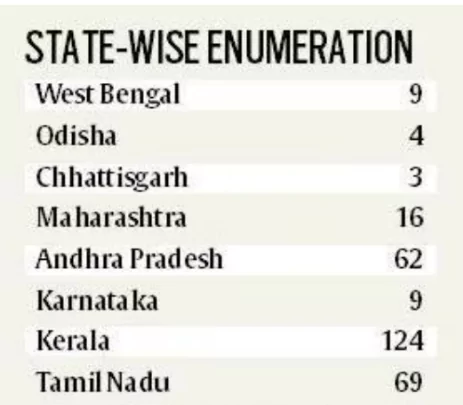The Anglo-Indian community in India, represented by its leaders, has called upon the central government to reinstate reserved seats for Anglo-Indians in the Lok Sabha (Lower House of Parliament) and State Assemblies.
Issues Raised by the Anglo-Indian Community

- Restoration of Reserved Seats: Leaders urge the government to restore reserved seats for Anglo-Indians in Parliament and State Assemblies, a provision previously removed due to low population data.
- Request for Caste Census: Leaders call for a caste census to accurately count Anglo-Indians, asserting that their population is closer to 400,000, not the 296 suggested by outdated data from the 2011 Census.
- Economic and Educational Challenges: The Anglo-Indian community faces significant economic and educational hardships, as highlighted in a 2013 Ministry of Minority Affairs study, which reported issues like housing struggles and identity crises.
- Loss of Influence in Community Institutions: Former MP Charles Dias noted Anglo-Indians’ declining control over institutions they built, with challenges in admissions and employment.
Enroll now for UPSC Online Course
Notable Anglo Indian MPs
- Frank Anthony got nominated to Lok Sabha in 1952, 1957, 1962, 1967, 1971, 1980, 1984 and 1991.
- Joss Fernandez and Paul Mantosh were nominated by the Janata Dal government headed by V P Singh in 1989.
- In 2014 the NDA government nominated George Baker, an actor, and Richard Hay, a teacher from Kerala.
|
- Appeal for Commission and Separate Enumeration: Leaders seek a government commission to assess their community’s socio-economic status and call for separate enumeration in the next census.
About Anglo-Indian Community
- Origins: The Anglo-Indian community in India originated from an official policy by the British East India Company, which encouraged marriages between its officers and local women.
- Definition:The term “Anglo-Indian” first appeared in the Government of India Act, 1935.
- Article 366 (2) of the Constitution of India defines an Anglo-Indian as:
- A person whose father or male ancestors are of European descent.
- Domiciled within Indian territory, born to parents habitually resident in India (not temporarily present).
- Community Contributions:The community has made significant contributions to Indian society, especially in fields such as education, railways, and the armed forces.
- Cultural Identity: Anglo-Indians maintain a distinct cultural identity, with elements of both Western and Indian influences, including in language, cuisine, and customs.
Constitutional Provisions for Anglo-Indian Reservation
- Article 331: Permits the President to nominate two Anglo-Indians to the Lok Sabha if the community lacks adequate representation.
- Article 333: Allows a State Governor to nominate one Anglo-Indian to the State Assembly if the community is underrepresented.
- Article 334(b): Extended Anglo-Indian reservations in legislative bodies for 40 years from 1949.
- National Commission for SCs (Article 338): Examines constitutional and legal safeguards for Anglo-Indians, reporting their effectiveness to the President.
Check Out UPSC CSE Books From PW Store
Historical Context of Reservation
- Constituent Assembly Intent: Initially, the Constituent Assembly envisioned a 10-year reservation for SCs/STs starting in 1950.
- Amendments to Article 334: This article, which set timelines for SC/ST and Anglo-Indian reservations, was repeatedly amended to extend deadlines, starting with the 8th Amendment (1969) and ending with the 104th Amendment (2019).
- 104th Constitutional Amendment Act, 2019: Ended Anglo-Indian reservations and set 2030 as the final year for SC/ST reservations in Lok Sabha and State Assemblies, concluding an 80-year period since 1950.
![]() 7 Nov 2024
7 Nov 2024

